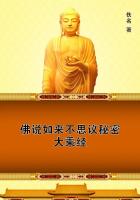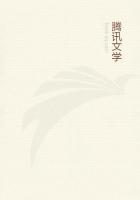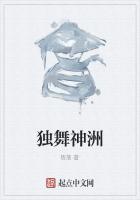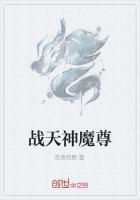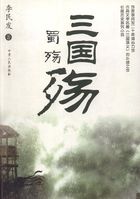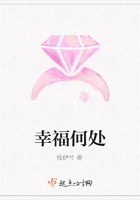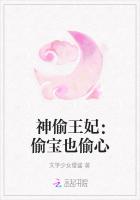The power of vision - hardly can a writer, least of all if he be a poet, forego that part of his equipment.In dealing with the impalpable, dim subjects that lie beyond the border-land of exact knowledge, the poetic instinct seeks always to bring them into clear definition and bright concrete imagery, so that it might seem for the moment as if painting also could deal with them.Every abstract conception, as it passes into the light of the creative imagination, acquires structure and firmness and colour, as flowers do in the light of the sun.Life and Death, Love and Youth, Hope and Time, become persons in poetry, not that they may wear the tawdry habiliments of the studio, but because persons are the objects of the most familiar sympathy and the most intimate knowledge.
How long, O Death? And shall thy feet depart Still a young child's with mine, or wilt thou stand Full grown the helpful daughter of my heart, What time with thee indeed I reach the strand Of the pale wave which knows thee what thou art, And drink it in the hollow of thy hand?
And as a keen eye for the imagery attendant on a word is essential to all writing, whether prose or poetry, that attempts the heart, so languor of the visual faculty can work disaster even in the calm periods of philosophic expatiation."It cannot be doubted," says one whose daily meditations enrich THE PEOPLE'S POST-BAG, "that Fear is, to a great extent, the mother of Cruelty." Alas, by the introduction of that brief proviso, conceived in a spirit of admirably cautious self-defence, the writer has unwittingly given himself to the horns of a dilemma whose ferocity nothing can mitigate.These tempered and conditional truths are not in nature, which decrees, with uncompromising dogmatism, that either a woman is one's mother, or she is not.The writer probably meant merely that "fear is one of the causes of cruelty," and had he used a colourless abstract word the platitude might pass unchallenged.
But a vague desire for the emphasis and glamour of literature having brought in the word "mother," has yet failed to set the sluggish imagination to work, and a word so glowing with picture and vivid with sentiment is damped and dulled by the thumb-mark of besotted usage to mean no more than "cause" or "occasion." Only for the poet, perhaps, are words live winged things, flashing with colour and laden with scent; yet one poor spark of imagination might save them from this sad descent to sterility and darkness.
Of no less import is the power of melody which chooses, rejects, and orders words for the satisfaction that a cunningly varied return of sound can give to the ear.Some critics have amused themselves with the hope that here, in the laws and practices regulating the audible cadence of words, may be found the first principles of style, the form which fashions the matter, the apprenticeship to beauty which alone can make an art of truth.And it may be admitted that verse, owning, as it does, a professed and canonical allegiance to music, sometimes carries its devotion so far that thought swoons into melody, and the thing said seems a discovery made by the way in the search for tuneful expression.
What thing unto mine ear Wouldst thou convey, - what secret thing, O wandering water ever whispering?
Surely thy speech shall be of her, Thou water, O thou whispering wanderer, What message dost thou bring?
In this stanza an exquisitely modulated tune is played upon the syllables that make up the word "wandering," even as, in the poem from which it is taken, there is every echo of the noise of waters laughing in sunny brooks, or moaning in dumb hidden caverns.Yet even here it would be vain to seek for reason why each particular sound of every line should be itself and no other.For melody holds no absolute dominion over either verse or prose; its laws, never to be disregarded, prohibit rather than prescribe.Beyond the simple ordinances that determine the place of the rhyme in verse, and the average number of syllables, or rhythmical beats, that occur in the line, where shall laws be found to regulate the sequence of consonants and vowels from syllable to syllable? Those few artificial restrictions, which verse invents for itself, once agreed on, a necessary and perilous license makes up the rest of the code.Literature can never conform to the dictates of pure euphony, while grammar, which has been shaped not in the interests of prosody, but for the service of thought, bars the way with its clumsy inalterable polysyllables and the monotonous sing-song of its inflexions.On the other hand, among a hundred ways of saying a thing, there are more than ninety that a care for euphony may reasonably forbid.All who have consciously practised the art of writing know what endless and painful vigilance is needed for the avoidance of the unfit or untuneful phrase, how the meaning must be tossed from expression to expression, mutilated and deceived, ere it can find rest in words.The stupid accidental recurrence of a single broad vowel; the cumbrous repetition of a particle; the emphatic phrase for which no emphatic place can be found without disorganising the structure of the period; the pert intrusion on a solemn thought of a flight of short syllables, twittering like a flock of sparrows; or that vicious trick of sentences whereby each, unmindful of its position and duties, tends to imitate the deformities of its predecessor; - these are a select few of the difficulties that the nature of language and of man conspire to put upon the writer.He is well served by his mind and ear if he can win past all such traps and ambuscades, robbed of only a little of his treasure, indemnified by the careless generosity of his spoilers, and still singing.


